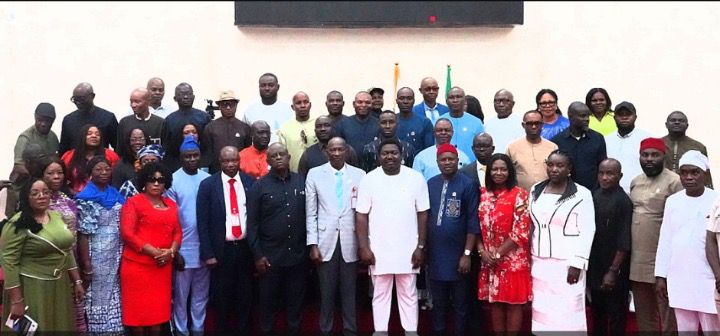By Bavoriat Clara
The Independent Corrupt Practices and Other Related Offences Commission (ICPC) has launched a two-day capacity-building workshop for local government officials in Akwa Ibom State to promote corruption prevention and effective resource management at the grassroots level.
The workshop, which is being held in collaboration with the Foundation for Transparency and Accountability (FTA) and with the support of the Akwa Ibom State Government, is facilitated by the Anti-Corruption Academy of Nigeria (ACAN), the training and research arm of the Commission.
In a statement issued in Abuja by the ICPC Director of Public Enlightenment and Education, Mr. Demola Bakare, the ICPC Chairman, Dr. Musa Adamu Aliyu, said the initiative was part of the Commission’s broader strategy to strengthen accountability in local government administration.
Represented by the Director of Systems Study and Review, Mr. Olusegun Adigun, Dr. Aliyu explained that the workshop was designed to help principal officers identify corruption risks within their councils and develop proactive strategies to address them.He also highlighted the introduction of the Accountability and Corruption Prevention Programme for Local Government (ACPP-LG), a mechanism developed in response to the full financial autonomy granted to local governments.
According to him, the ACPP-LG is aimed at improving transparency, promoting citizen engagement, and ensuring compliance with ethical standards in local governance.
Dr. Aliyu warned that while the Commission prioritizes prevention, it will not hesitate to prosecute any official found guilty of corrupt practices.
In a goodwill message, the Chairman of the Association of Local Governments of Nigeria (ALGON), Akwa Ibom State Chapter, Dr. Uwemedimo Udo, commended the ICPC for the initiative, describing it as timely and impactful.
He assured the Commission of the officials’ readiness to apply the knowledge gained from the training.
The participants include local government chairmen, leaders of legislative councils, heads of service, directors of finance, and other senior officials from the 31 local government areas in Akwa Ibom State.
